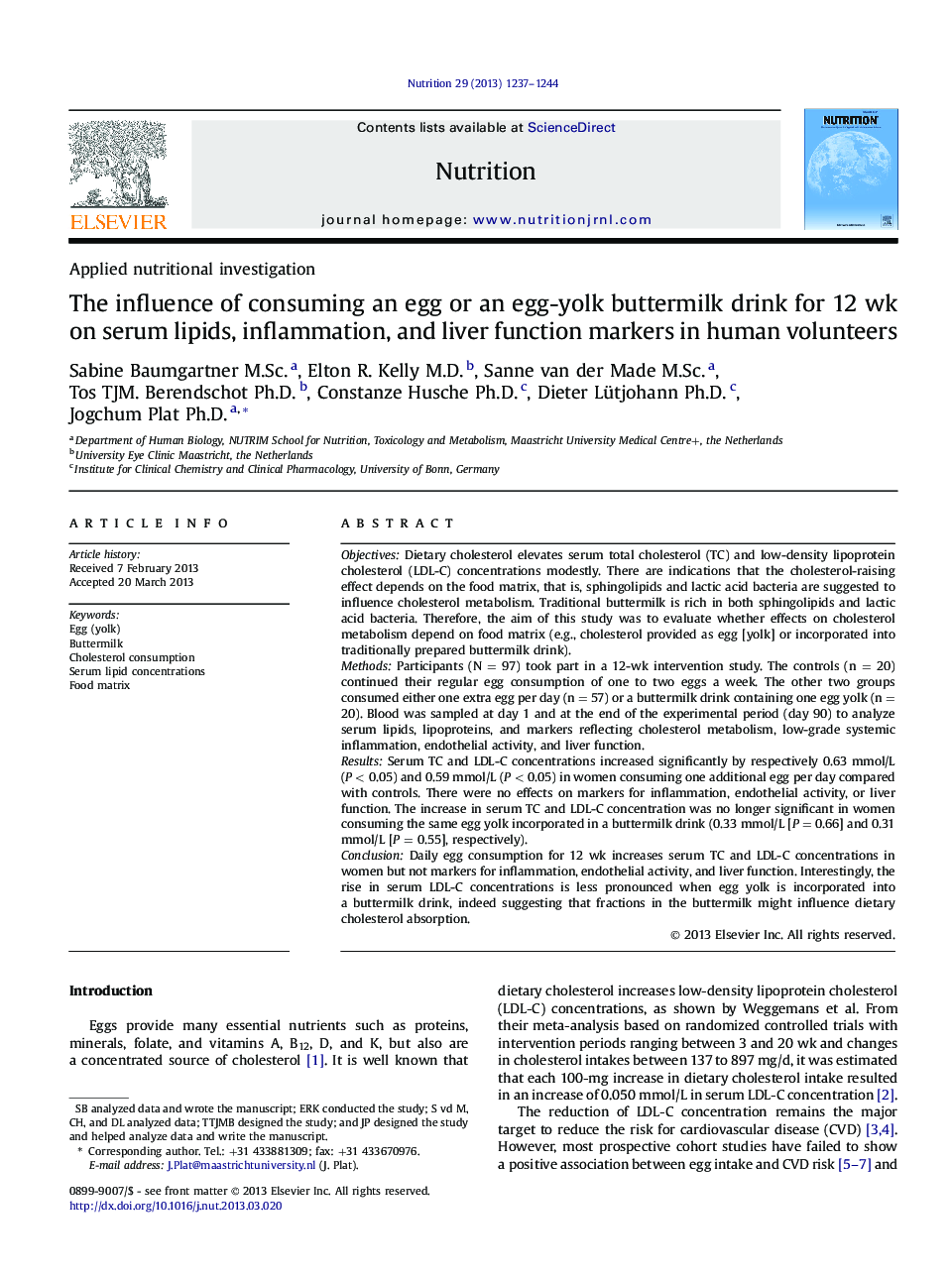| کد مقاله | کد نشریه | سال انتشار | مقاله انگلیسی | نسخه تمام متن |
|---|---|---|---|---|
| 3276418 | 1208558 | 2013 | 8 صفحه PDF | دانلود رایگان |

ObjectivesDietary cholesterol elevates serum total cholesterol (TC) and low-density lipoprotein cholesterol (LDL-C) concentrations modestly. There are indications that the cholesterol-raising effect depends on the food matrix, that is, sphingolipids and lactic acid bacteria are suggested to influence cholesterol metabolism. Traditional buttermilk is rich in both sphingolipids and lactic acid bacteria. Therefore, the aim of this study was to evaluate whether effects on cholesterol metabolism depend on food matrix (e.g., cholesterol provided as egg [yolk] or incorporated into traditionally prepared buttermilk drink).MethodsParticipants (N = 97) took part in a 12-wk intervention study. The controls (n = 20) continued their regular egg consumption of one to two eggs a week. The other two groups consumed either one extra egg per day (n = 57) or a buttermilk drink containing one egg yolk (n = 20). Blood was sampled at day 1 and at the end of the experimental period (day 90) to analyze serum lipids, lipoproteins, and markers reflecting cholesterol metabolism, low-grade systemic inflammation, endothelial activity, and liver function.ResultsSerum TC and LDL-C concentrations increased significantly by respectively 0.63 mmol/L (P < 0.05) and 0.59 mmol/L (P < 0.05) in women consuming one additional egg per day compared with controls. There were no effects on markers for inflammation, endothelial activity, or liver function. The increase in serum TC and LDL-C concentration was no longer significant in women consuming the same egg yolk incorporated in a buttermilk drink (0.33 mmol/L [P = 0.66] and 0.31 mmol/L [P = 0.55], respectively).ConclusionDaily egg consumption for 12 wk increases serum TC and LDL-C concentrations in women but not markers for inflammation, endothelial activity, and liver function. Interestingly, the rise in serum LDL-C concentrations is less pronounced when egg yolk is incorporated into a buttermilk drink, indeed suggesting that fractions in the buttermilk might influence dietary cholesterol absorption.
Journal: Nutrition - Volume 29, Issue 10, October 2013, Pages 1237–1244